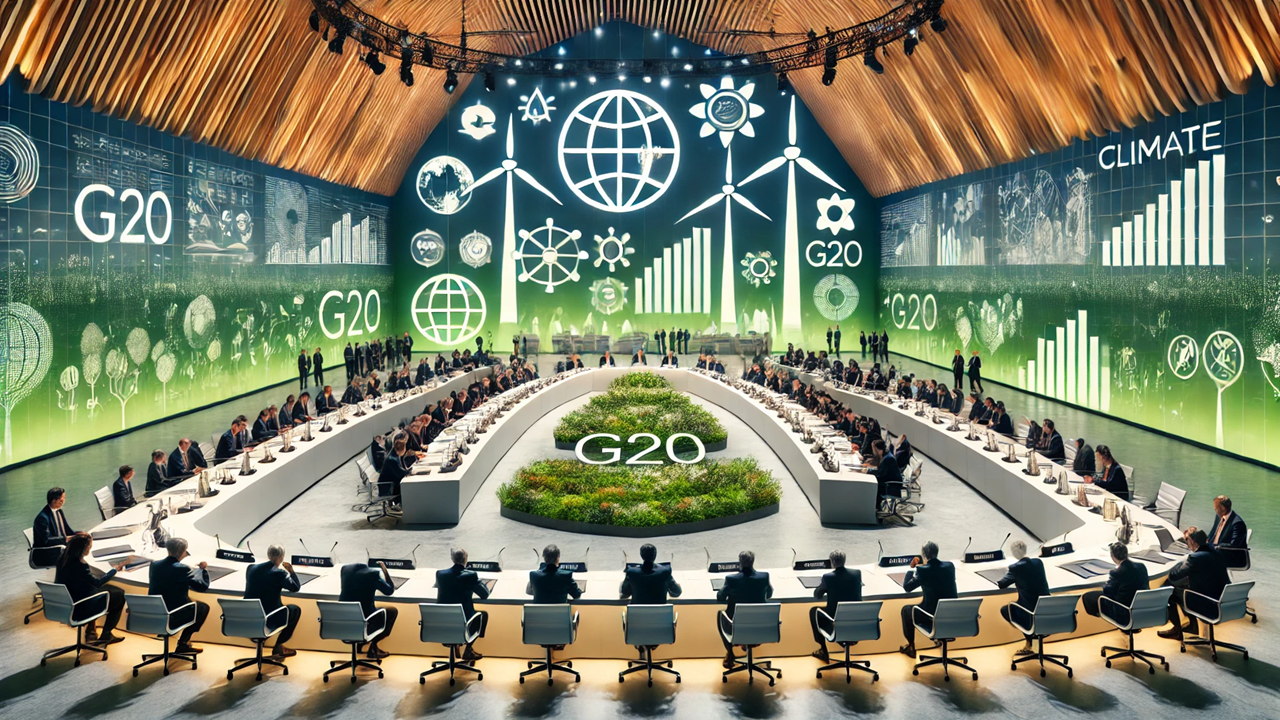SA’s Historic G20 Presidency: A Milestone for Africa and a Call for Global Collaboration
South Africa's leadership brings an opportunity to prioritize Africa's development and foster inclusive dialogue among nations.

- Country:
- South Africa
On December 1, 2024, South Africa made history by becoming the first African country to assume the presidency of the G20, taking over from Brazil. This marks a pivotal moment not only for South Africa but for the entire continent, providing a significant platform to amplify Africa’s voice on a global stage. The G20, an international forum of the world’s leading developed and emerging economies, addresses complex global issues ranging from economic stability to health, trade, and climate change. South Africa's leadership brings an opportunity to prioritize Africa's development and foster inclusive dialogue among nations.
The significance of hosting the G20 on African soil next November has been met with a sense of pride and optimism, reminiscent of past global successes like the 2010 FIFA World Cup, the 17th Conference of the Parties (COP17) on Climate Change, and other major international forums. President Cyril Ramaphosa, in recent discussions with Nigerian President Bola Ahmed Tinubu, reaffirmed South Africa's commitment to bringing Africa’s development issues, including the African Union’s (AU) Agenda 2063, to the forefront of the G20 discussions.
Agenda 2063 is a strategic blueprint designed to achieve inclusive and sustainable development over 50 years, emphasizing high standards of living, economic self-reliance, and socio-economic integration. As the sole African member of the G20, South Africa is positioned to champion the continent's interests and work toward collaborative solutions for common challenges like poverty reduction, economic growth, and climate resilience. Key Goals and Strategic Engagements:
South Africa has embraced the G20 presidency theme of “Solidarity, Equality, Sustainability,” signifying a clear commitment to inclusive progress and international cooperation. The first Sherpa meeting, held on December 9-10, initiated dialogues aimed at fostering an inclusive global agenda. Sherpas, led by Director-General Zane Dangor, serve as key negotiators preparing for the final summit. Supported by Sous-Sherpas Ambassador Xolisa Mabhongo and Advocate Nokukhanya Jele, Dangor described the initial meetings as robust, inclusive, and constructive.
These early discussions reviewed G20 achievements and ongoing challenges, setting the stage for meaningful, results-oriented conversations. With South Africa’s Sherpa team actively working to advance strategic objectives, the country is not merely hosting but playing a proactive role in reshaping global discourse. The G20 presidency presents an opportunity for Africa to advocate for equitable trade practices, debt relief, and a greater focus on sustainable development initiatives.
Building on Past Successes and Looking Forward
South Africa’s proven ability to host global events will be crucial in making the G20 summit an exceptional experience. Past events such as BRICS Summits, the World Conference Against Racism, and the World Economic Forum (WEF) Africa have demonstrated the country’s capacity to successfully manage large international gatherings and influence global policy discussions.
President Ramaphosa has indicated that South Africa will also support Nigeria’s ambition to join the G20, reflecting the nation’s belief in collective progress and solidarity among African countries. This move aligns with recent developments where the African Union became a permanent member of the G20, creating a unified African presence alongside the European Union (EU) as regional representatives in the forum.
Collaboration and Ubuntu at the Core
Realizing the G20 presidency’s potential will require engagement from all sectors of society, embodying the spirit of ubuntu—humanity toward others. South Africans are called to bring their unique hospitality, cultural richness, and innovative problem-solving skills to the table. As in 2010, when the nation captivated the world, there is an opportunity to showcase resilience, inclusivity, and forward-thinking solutions that can inspire and lead global progress.
“Biosecurity, agricultural growth, economic empowerment, and innovation are core to our platform,” President Ramaphosa noted, underscoring the diverse issues that South Africa aims to address under its leadership.
Call to Action for a United Effort
The presidency is not just a task for government officials but a collective responsibility that requires collaboration from civil society, business sectors, academia, and ordinary citizens. Through a blend of local insight and international diplomacy, South Africa has the opportunity to reinforce global partnerships and promote a fair, sustainable world order.
By next November, the eyes of the world will again be on South Africa, offering a chance to create a legacy that benefits not only the present but future generations. Let’s aim to deliver an extraordinary G20 summit that contributes lasting value to Africa and the world, reaffirming our capacity to be leaders on the global stage.
- READ MORE ON:
- G20 Presidency










